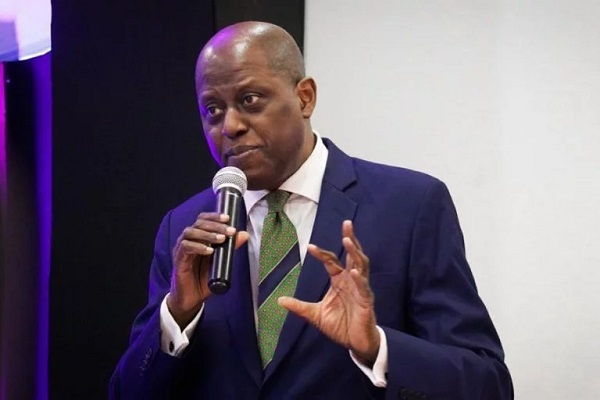The Monetary Policy Committee (MPC) of the Central Bank of Nigeria (CBN) on Tuesday held all key policy rates steady, pausing its months-long monetary tightening stance in a strategic move to observe and evaluate near-term economic developments.
Addressing journalists in Abuja at the end of the committee’s 300th meeting, CBN Governor Olayemi Cardoso said the decision to hold rates was unanimously agreed upon by members of the Committee to gain clearer insights into evolving macroeconomic dynamics and ensure sustainable economic stability.
“The consideration is to enable a better understanding of near-term developments,” Cardoso stated, noting that recent indicators suggested relative improvements across several economic fronts. Cardoso said his team remains committed to anchoring inflation expectations and easing exchange rate pressures while monitoring key indicators to guide future decisions.
The committee resolved to retain the Monetary Policy Rate (MPR) at 27.50 per cent, maintain the asymmetric corridor around the MPR at +500/-100 basis points, and keep the Cash Reserve Ratio (CRR) for Deposit Money Banks at 50 per cent and for Merchant Banks at 16 per cent. The Liquidity Ratio was also held steady at 30 per cent.
Highlighting new strategies to improve reserves, Cardoso revealed the CBN’s ambition to boost external reserves by $1 billion monthly through enhanced diaspora remittances, leveraging the recently launched Non-Resident Bank Verification Number (BVN) initiative.
“This is the Nigerian spirit at work. There’s nothing that will stop us from getting there and even exceeding that,” Cardoso said. “At one point in time, you look at a particular segment where there was nothing, and then you wake up later and see so much, just from being creative and conscientious.”
Cardoso emphasised that the Non-Resident Bank Verification Number initiative reflects the CBN’s role as a catalyst, allowing the private sector to take the lead in driving growth.
“We’ve carried the private sector along. We’re not saying this is the responsibility of the central bank. It isn’t,” he stated, adding that banks will now drive the process, with the CBN providing support when needed.
Cardoso explained that the decision to hold the rates constant reflects the MPC’s recognition of improvements in inflation dynamics, foreign exchange market stability, and the balance of payments position, all of which could support a continued moderation in prices over the medium term.
Headline inflation decelerated to 23.71 per cent in April 2025, down from 24.23 per cent in March. Month-on-month inflation also dropped sharply from 3.9 percent to 1.86 per cent during the same period. Food inflation eased further to 21.26 per cent in April, compared to 21.79 per cent in March, while core inflation also moderated to 23.39 per cent from 24.43 per cent.
He attributed the improvements to the easing price of Premium Motor Spirit (PMS), improved food supply, and the government’s efforts to address insecurity in farming regions.
The MPC commended the federal government’s initiatives to bolster agricultural production and enhance food security, urging continued support for farmers and sustained security efforts in agrarian communities.
Cardoso said the MPC observed with satisfaction the narrowing gap between the official Nigerian Foreign Exchange Market (NFEM) and Bureau De Change (BDC) rates, a development attributed to ongoing reforms aimed at improving transparency and confidence in the FX market.
However, the committee flagged concerns over persistent inflationary pressures driven by high electricity costs, lingering foreign exchange demand, and structural challenges.
It acknowledged the Federal Government’s new policy measures targeted at boosting local production and curbing FX demand to mitigate these pressures.
The Committee also expressed concern over the recent decline in global crude oil prices, citing increased production from non-OPEC countries and trade uncertainties linked to U.S. policy as potential threats to Nigeria’s fiscal receipts and budget implementation.
To address these vulnerabilities, the MPC urged fiscal authorities to strengthen ongoing efforts to enhance foreign exchange earnings, particularly from gas, oil, and non-oil exports.
The CBN reaffirmed the resilience of Nigeria’s banking system, citing improvements in key performance indicators and commendable progress in the ongoing recapitalisation exercise. Cardoso assured that the apex bank would maintain strict oversight to ensure compliance with regulatory and prudential guidelines.
We’ve got the edge. Get real-time reports, breaking scoops, and exclusive angles delivered straight to your phone. Don’t settle for stale news. Join LEADERSHIP NEWS on WhatsApp for 24/7 updates →
Join Our WhatsApp Channel











